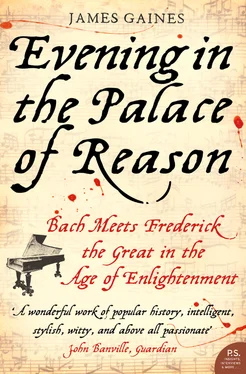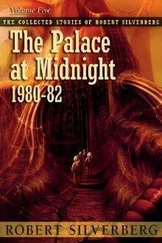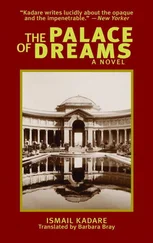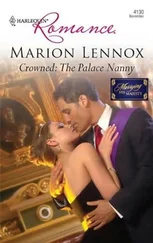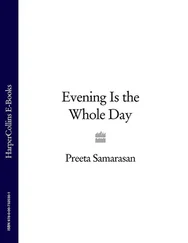Not until his father died when Frederick was twenty-eight could he play his flute free from the threat of censure or attack, so naturally it was among his most beloved and time-consuming pastimes as king. With the musicians in his court Kapelle, who were not only the best in Prussia but the best he could buy away from Saxony and Hanover and every other German territory, he played concerts virtually every evening from seven to nine o’clock, sometimes even on the battlefield. He cared as much about music as he cared about anything, except perhaps for war.
Having had both a love of the military and a cynical, self-protective ruthlessness literally beaten into him by his father, Frederick had already been dubbed “the Great” after only five years on the throne, by which time he had greatly enlarged his kingdom with a campaign of outrageously deceitful diplomacy and equally incredible military strokes that proved him a brilliant antagonist and made Prussia, for the first time, a top-rank power in Europe. A diligent amateur of the arts and literature—avid student of the Greek and Roman classics, composer and patron of the opera, writer of poetry and political theory (mediocre poetry and wildly hypocritical political theory, but never mind)—he had managed also to make himself known as the very model of the newly heralded “philosopher-king,” so certified by none less than Voltaire, who described young Frederick as “a man who gives battle as readily as he writes an opera … He has written more books than any of his contemporary princes has sired bastards; and he has won more victories than he has written books.” Frederick’s court in Potsdam fast became one of the most glamorous in Europe, no small thanks to himself, who worked tirelessly to draw around him celebrities (like Voltaire) from every corner of the arts and sciences.
One Sunday evening in the spring of his seventh year as king, as his musicians were gathering for the evening concert, a courtier brought Frederick his usual list of arrivals at the town gate. As he looked down the list of names, he gave a start.
“Gentlemen,” he said, “old Bach is here.” Those who heard him said there was “a kind of agitation” in his voice.

JOHANN SEBASTIAN BACH was sixty-two years old in 1747, only three years from his death, and making the long trip from Leipzig, which would be his last journey, was surely more a concession than a wish. An emphatically self-directed, even stubborn man, Bach took a dim view of this particular king, the Prussian army having overrun Leipzig less than two years before, and at his advanced age he could not have relished spending two days and a night being jostled about in a coach to meet the bitter enemy of his own royal patron, the elector of Saxony. Even more problematic than the political and physical difficulties of such a journey, though, the meeting represented something of a confrontation for the aging composer—a confrontation, one might say, with his age. In music and virtually every other sphere of life in mid-eighteenth-century Germany, Frederick represented all that was new and fashionable, while Bach’s music had come to stand for everything ancient and outmoded. His musical language, teaching, and tradition had been rejected and denounced by young composers and theorists, even by his own sons, and Bach had every reason to fear that he and his music were to be forgotten entirely after his death, had indeed been all but forgotten already. For this reason and others, his encounter with Prussia’s young king threatened to bring into question some of the most important qualities by which he defined himself, as a musician and as a man. It would also present him the opportunity for one of the most powerful and eloquent assertions of principle he had ever made, but that would have been anything but clear to him at the time.
Bach came despite the challenges involved because Frederick was the employer of his son Carl Philipp Emanuel Bach, the chief harpsichordist in Prussia’s royal Kapelle. Carl had been hired on when Frederick was still crown prince, hiding from his father the fact that he had any musicians and paying their salaries by borrowing secretly from foreign governments and padding his expenses. It was even then an extraordinary group, including the best composers and musicians of the “modern” generation, most of them well known to—but a good deal younger than—Carl’s father. Frederick had been hinting broadly that he would like to meet “old Bach” ever since Carl had come to work for him, and Carl’s letters home had reflected a growing concern that at some point the king’s wish would become his command. But no one knew better than Carl just what a collision of worlds a meeting between his flashy, self-regarding employer and his irascible, deeply principled father would be.
There were very few similarities indeed between the young king and the old composer, but there was this one: They stood firm in their respective roles, their fields of work having been determined by long ancestry. The Hohenzollern dynasty had ruled in Germany for three hundred years before Frederick was born and would rule for two hundred more, to the end of World War I. The Bach line stretched from Luther across three centuries, and theirs too was a family business; more than five dozen Bachs held important musical positions in German towns, courts, and churches between the sixteenth and eighteenth centuries.
Such strong ancestral lines made the journey to Potsdam even more pointedly a foray into enemy territory for Bach, of course, not only literally, as a proud son of Saxony standing against the aggressive Prussian neighbor, but figuratively as well: The king and the composer faced each other as the embodiments of warring values. Bach was a devout Lutheran householder who had had twenty children with two wives; one left him a widower, the second was waiting for him at home. Frederick, a bisexual misanthrope in a childless, political marriage, was a lapsed Calvinist whose reputation for religious tolerance arose from the fact that he held all religions equally in contempt. Bach wrote and spoke German. Frederick boasted that he had “never read a German book.”
Nowhere were they more different, though, than in their attitudes toward music. Bach represented church music and especially the “learned counterpoint” of canon and fugue, a centuries-old craft that by now had developed such esoteric theories and procedures that some of its practitioners saw themselves as the custodians of a quasi-divine art, even as weavers of the cosmic tapestry itself. Frederick and his generation were having none of that. They denigrated counterpoint as the vestige of an outworn aesthetic, extolling instead the “natural and delightful” in music, by which they meant the easier pleasure of song, the harmonic ornamentation of a single line of melody. For Bach this new, so-called galant style, with all its lovely figures and stylish grace, was full of emptiness. Bach’s cosmos was one in which the planets themselves played the ultimate harmony, a tenet that had been unquestioned since the “sacred science” of Pythagoras; composing and performing music was for him and his musical ancestors a deeply spiritual enterprise whose sole purpose, as his works were inscribed, was “for the glory of God.” For Frederick the goal of music was simply to be “agreeable,” an entertainment and a diversion, easy work for performer and audience alike. He despised music that, as he put it, “smells of the church” and called Bach’s chorales specifically “dumb stuff.” Cosmic notions like the “music of the spheres” were for him so much dark-age mumbo jumbo.
In short, Bach was a father of the late Baroque, and Frederick was a son of the early Enlightenment, and no father-son conflict has ever been more pointed. Put all too simply, as any one-sentence description of the Enlightenment must be, myth and mysticism were giving way to empiricism and reason, the belief in the necessity of divine grace to a confidence in human perfectibility, the descendants of Pythagoras and Plato to those of Newton. In music, as in virtually every other intellectual pursuit, the intuitions, attitudes, and ideas of a thousand years were being exchanged for principles and habits of thought that are still evolving and in question three centuries later. Frederick the Great and Johann Sebastian Bach met at the tipping point between ancient and modern culture, and what flowed from their meeting would be a more than musical expression of that historic moment.
Читать дальше
